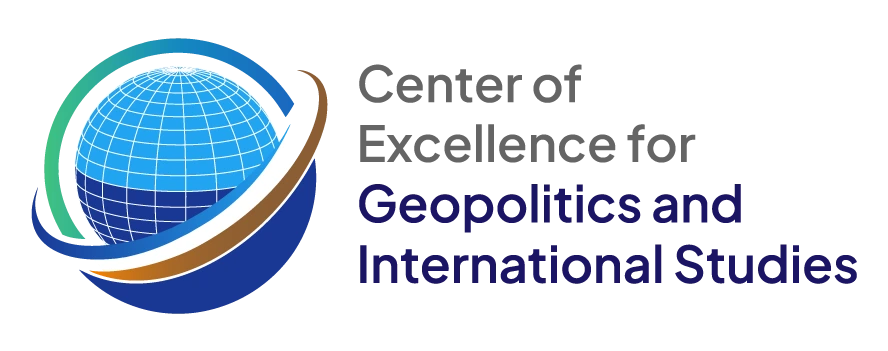Closing the Knowledge Gates: U.S. Knowledge Diplomacy’s Reversal and the Opportunity for India
Nomita Mishra
24 May 2025
The US recently blocked “Harvard University’s ability to enrol international students” after the Trump administration alleged the university's responsibility against the rise of “antisemitism”, “violence”, and “cooperation with the Chinese Communist Party”. The move is likely to impact over 700 Indian students studying in the US.
The Department of Homeland Security revoked the “University’s Student Exchange Visitor Program Certification”, which would require the students “transfer to another university to maintain their non-immigrant status”.
The Trump Administration had earlier “cut 1,000 grants worth more than US$2.4 billion” and most of these grants were given in streams such as agriculture and bio-medical sciences. The US government contributes 11 percent, around $6.4 billion dollar to Harvard's annual budget.
Harvard University responded to Trump’s actions and called them “unlawful’ and ‘retaliatory”. The Trump Administration pressurized the University to share the data related to disciplinary records—audio-video recordings, activities on campus, and information of international students by 30th April 2025 or face consequences.
Under the new guidelines, no international student can be enrolled by Harvard on F- or J- visas for the academic year 2025-26” hence the revocation of the certification is likely to impact nearly 6800 international students of the University, out of which more than 788 students are Indians.
The rollback of U.S. knowledge diplomacy under Trump carries six significant implications for Indian students, scholars, and academia.
First, administration’s move has created a tornado of financial and academic disruption for many Indian and other international students in the US, as the new orders require international students to “either transfer to other SEVP-certified institutions or risk losing their legal status in the U.S”. Hence it is required to find alternative institutions for transfers while getting refund of tuition fees poses another challenge to Indian students.
Second, the U.S. under Trump’s Administration is deviating from its earlier commitments towards knowledge diplomacy, which requires strengthening cooperation with countries in higher education institutions for research and innovation. This entails a more collaborative approach, as enshrined under the soft power approach of international relations.
Third, despite being a democratic country U.S. is exercising censorship over universities. Universities are key players in knowledge diplomacy and contribute significantly to various traditional and contemporary initiatives. They serve as a channel for the flow of not just people, but also knowledge, values, economy, and culture, providing a key platform for knowledge diplomacy. Academic exchanges and international student recruitments are considered to be primary contributors towards developing mutual understanding and long-term relationships.
Fourth, the slash of research aid to the University as well as institutes, such as the “National Institute of Health” (NIH), which researches biomedical subjects, can adversely affect scientific collaboration in research especially in addressing health global challenges.
Fifth, the U.S. is weaponizing research grants to force government policies by undermining innovations, technological upgradation, and knowledge building, which contributed to ensuring American supremacy in research and development. It enhanced the knowledge diplomacy of the U.S. and connected it with the world, fostering scientific internationalism, exemplified in the form of international research partnerships to foster innovation and mutual understanding, and helped in addressing global challenges like climate change, pandemics, and natural hazards.
Sixth, the U.S’ knowledge isolationism can be contrasted with India’s knowledge internationalization. India’s educational policy framework has become increasingly conducive for international students. Internationalization was never alien to India’s existing educational practice. India has been the home to scholastic epicentres of the ancient world, such as Takshashila and Nalanda University, that have attracted thousands of students from across the globe. India’s current policy framework carries this legacy forward with initiatives such as ‘Study in India, which provides a single window platform covering all aspects of higher education opportunities for foreign students’, twinning programmes, and increasing emphasis on making learners Global Citizens. Further, India’s policy also encourages foreign universities to set up campuses in India, facilitating international student enrolment through streamlined visa processes.
Amid the ongoing crisis, India’s approach offers valuable lessons for the U.S., which should recalibrate its policies to foster its commitment to knowledge diplomacy, reimagining its engagement with international students.
The U.S. is closing the knowledge gates for international students which marks the reversal of U.S.’s knowledge diplomacy, but at the same time provides an opportunity for India and its universities to attain Atmanirbharta to make India a global knowledge hub— as it was known during the ancient times as home to oldest repositories of knowledge such as Nalanda and Takshashila etc. This is India’s moment to lead the world into an era of indigenous, inclusive and innovative education.
Ms. Nomita Mishra is a Doctoral Research Scholar at the National Law University, Delhi, and a Former Assistant Professor of Law at the Rashtriya Raksha University, Gandhinagar, Gujarat.
